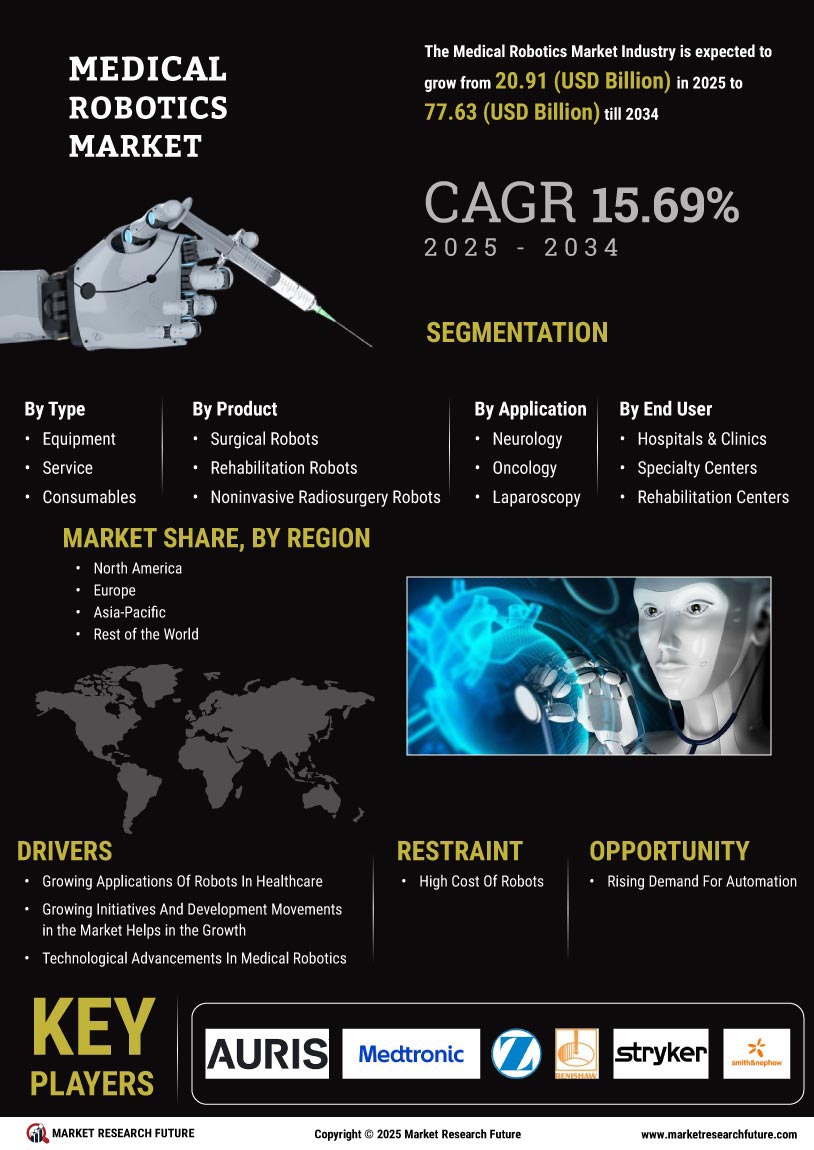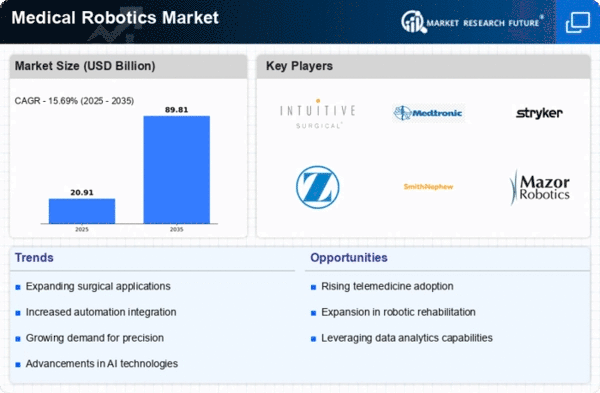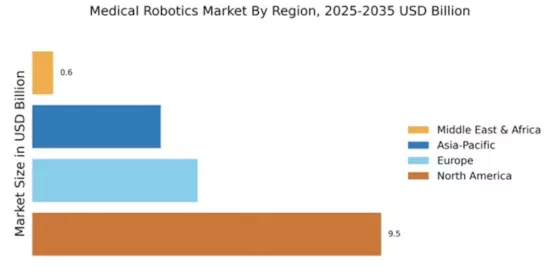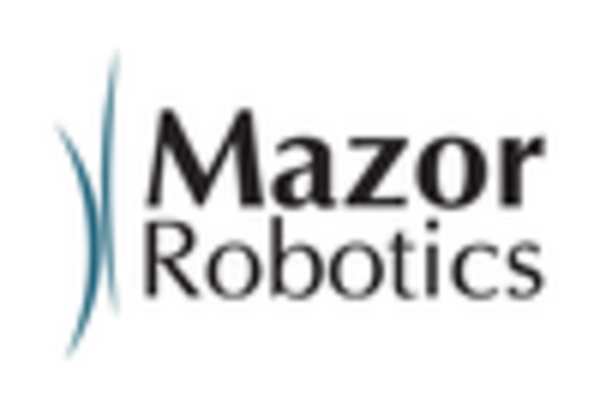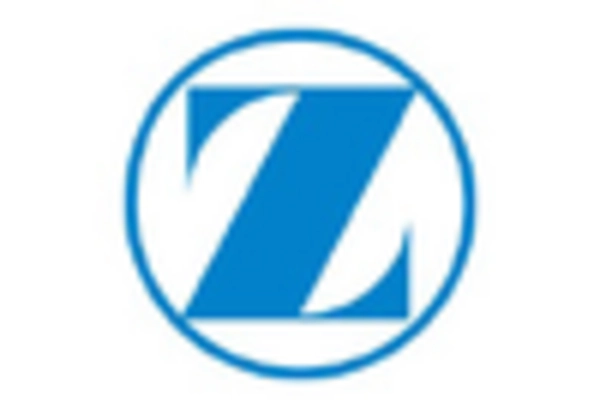North America : Market Leader in Robotics
North America continues to lead the medical robotics market, holding a significant share of 9.5 in 2024. The growth is driven by advanced healthcare infrastructure, increasing demand for minimally invasive surgeries, and supportive regulatory frameworks. The region's focus on innovation and technology adoption further propels market expansion, with a notable rise in robotic-assisted surgeries across various medical fields. The United States stands out as the primary market, hosting key players like Intuitive Surgical, Medtronic, and Stryker. The competitive landscape is characterized by continuous advancements in robotic technologies and strategic partnerships among leading firms. The presence of some of the largest robotics companies and a robust healthcare system positions North America as a hub for medical robotics innovation.
Europe : Emerging Robotics Hub
Europe's medical robotics market is on the rise, with a market size of 4.5 in 2024. The growth is fueled by increasing investments in healthcare technology, a growing elderly population, and a shift towards robotic-assisted surgeries. Regulatory support from the European Union for innovative medical devices also plays a crucial role in market expansion, enhancing patient outcomes and operational efficiency. Leading markets such as the market in Germany, France medical robotics market, and the UK sector are at the forefront of this growth, with a competitive landscape featuring largest robotics companies like KUKA and Medtronic. The region is witnessing a surge in collaborations between healthcare providers and technology firms, driving innovation in robotic solutions. As Europe embraces advanced medical technologies, the market is expected to continue its upward trajectory.
Asia-Pacific : Rapidly Growing Market
The Asia-Pacific region is experiencing rapid growth in the medical robotics market, with a size of 3.5 in 2024. Key drivers include rising healthcare expenditures, increasing awareness of robotic surgeries, and government initiatives to enhance healthcare infrastructure. The region's growing population and demand for advanced medical solutions are also contributing to this upward trend, making it a focal point for investment in medical robotics. Countries like Japan, China, and India are leading the charge, with a competitive landscape that includes both local and international players. The presence of some largest robotics companies such as Mazor Robotics and Accuray highlights the region's potential. As healthcare systems evolve, the adoption of robotic technologies is expected to accelerate, further solidifying Asia-Pacific's position in the global market.
Middle East and Africa : Emerging Market Potential
The Middle East and Africa (MEA) region is gradually emerging in the medical robotics market, with a market size of 0.57 in 2024. The growth is primarily driven by increasing investments in healthcare infrastructure and a rising demand for advanced surgical solutions. Governments are prioritizing healthcare improvements, which creates a conducive environment for the adoption of robotic technologies in hospitals and surgical centers. Countries like the UAE and South Africa are leading the way, with a growing number of healthcare facilities integrating robotic systems. The competitive landscape is still developing, with opportunities for both local and international players to establish a presence. As the region continues to invest in healthcare advancements, the potential for growth in medical robotics remains significant.
